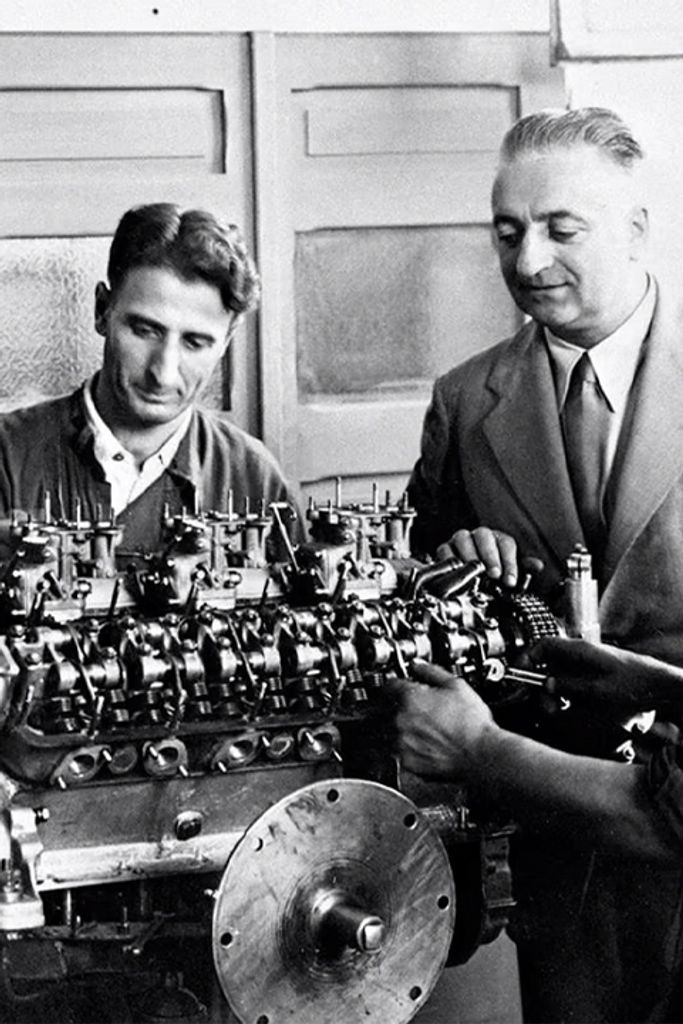Nigeria: Pragmatism Vs. Idealism – A Kite Runner Analysis

Table of Contents
Khaled Hosseini's The Kite Runner remains a powerful exploration of betrayal, redemption, and the often-painful collision between personal ideals and the harsh realities of life. Its enduring relevance stems from its exploration of universal themes that resonate across cultures and continents. This article will examine how the novel's central conflict—the tension between pragmatism and idealism—provides a compelling lens through which to analyze the complex social and political dynamics of contemporary Nigeria. We will argue that The Kite Runner, despite its Afghan setting, offers valuable insights into the interplay of pragmatism and idealism shaping Nigerian society, illuminating the choices individuals make when navigating challenging circumstances.
2. Main Points:
2.1 The Weight of Tradition and Pragmatic Choices in Nigeria:
H3: The Power of Family and Social Structures: In Nigeria, as in Afghanistan, deeply ingrained family structures and social expectations often dictate choices. Individuals frequently prioritize familial obligations and societal pressures, even when these choices compromise their personal ideals. This pragmatic approach to life is often born out of necessity, a need to maintain harmony and stability within a complex social fabric.
- Examples from The Kite Runner: Amir's decision to remain silent about Hassan's assault, driven by a desire to maintain his father's favor and uphold his position within their social circle, perfectly illustrates this point. His pragmatism, however regrettable, stems from the powerful influence of his father and the social repercussions of challenging the status quo.
- Parallels in Nigerian Society: Similar pressures exist in Nigeria, where arranged marriages, the expectation of supporting extended family members, and prioritizing family businesses over personal aspirations are common. The weight of tradition often compels pragmatic compromises, sometimes at the cost of individual desires and aspirations. This includes the pressure to conform to specific gender roles and expectations which often limit opportunities for women.
- Keyword integration: These examples demonstrate the profound influence of "Nigerian tradition," "social expectations," and the often-necessary "pragmatic compromises" individuals make to navigate their lives.
H3: Economic Realities and the Pursuit of Survival: Nigeria's economic landscape, characterized by significant disparities and widespread poverty, forces many to make pragmatic choices that directly conflict with their ethical values. The struggle for survival often overshadows idealism, leading individuals to compromise their moral compass for economic gain.
- Examples from The Kite Runner: Amir's silence about Hassan's assault can also be interpreted as a pragmatic choice dictated by his own survival instincts. His fear of losing his privileged position overshadows his moral obligation to protect his friend.
- Parallels in Nigeria: The prevalence of corruption in Nigeria, where individuals may engage in unethical practices to secure employment or resources, mirrors this theme. Similarly, the daily struggle for survival often pushes people to make difficult choices – such as engaging in informal economies or accepting exploitative working conditions – that prioritize immediate needs over long-term ideals.
- Keyword integration: This highlights the harsh realities of "economic hardship," the development of various "survival strategies," and the inescapable "ethical dilemmas" faced by many Nigerians.
2.2 Idealism and the Pursuit of Justice in a Pragmatic World:
H3: The Search for Redemption and Moral Reckoning: The Kite Runner powerfully portrays the characters' struggle for redemption and moral reckoning. Amir's lifelong journey to atone for his past actions mirrors the broader human desire for justice and accountability, a desire that often clashes with the pragmatic realities of life. This resonates deeply with Nigeria's ongoing struggle for justice and accountability.
- Examples from The Kite Runner: Amir's eventual quest to rescue Sohrab demonstrates his unwavering commitment to redemption, despite the significant personal risks involved. This highlights the enduring power of idealism even in the face of overwhelming obstacles.
- Parallels in Nigeria: The fight against corruption in Nigeria, the advocacy for human rights, and the pursuit of social justice all reflect this same desire for moral reckoning and the unwavering pursuit of ideals, despite systemic obstacles. The work of numerous NGOs and activists highlights the persistence of idealism in the face of pragmatism.
- Keyword integration: This speaks to the importance of "social justice," the demand for "moral accountability," and the continuous search for "redemption" in both fictional and real-world contexts.
H3: The Role of Education and Social Change: Both The Kite Runner and the Nigerian context demonstrate the powerful role of education and social activism in fostering idealism and inspiring positive change. Education can challenge societal norms and empower individuals to strive for a better future, while social activism provides a platform for voicing dissenting opinions and demanding reform.
- Examples from The Kite Runner: Sohrab's experiences, particularly his exposure to a more compassionate and nurturing environment, highlight the transformative power of education and the importance of fostering empathy and critical thinking.
- Parallels in Nigeria: Numerous educational initiatives and the vibrant network of NGOs and activists in Nigeria work relentlessly to challenge systemic inequalities, promote human rights, and advocate for social change. These organizations play a crucial role in empowering marginalized communities and fostering ideals of justice and equality. Educational reforms and initiatives focused on critical thinking are vital for driving positive change.
- Keyword integration: This underscores the importance of "social change," the need for "educational reform," the role of "activism in Nigeria," and the vital process of "empowerment."
2.3 Comparing and Contrasting the Contexts:
H3: Cultural Nuances and Universal Themes: While the socio-cultural contexts of Afghanistan (as depicted in The Kite Runner) and Nigeria differ significantly, the novel’s exploration of universal themes transcends geographical boundaries. Both societies grapple with patriarchal structures, class divisions, and the devastating impact of conflict, albeit in distinct ways.
- Comparative Analysis: Both settings showcase the power dynamics inherent in patriarchal societies, where men often hold dominant positions. Economic inequalities contribute to social stratification and the marginalization of certain groups. Conflict, whether internal or external, leaves deep scars on individuals and communities, often resulting in lasting trauma and displacement. However, the specific manifestations of these challenges vary significantly due to cultural and historical differences.
- Keyword integration: This "cross-cultural analysis" demonstrates the universality of the novel's "universal themes," highlighting the shared experiences of human beings despite distinct "socio-cultural contexts."
3. Conclusion: Understanding Nigeria through the Lens of The Kite Runner
This article has demonstrated how the interplay of pragmatism and idealism, as vividly depicted in Khaled Hosseini's The Kite Runner, offers a valuable framework for understanding the multifaceted complexities of Nigerian society. By analyzing the characters' choices and struggles, we gain insights into the challenges faced by Nigerians as they navigate the tension between personal ideals and the pragmatic demands of their daily lives. The novel's exploration of themes like redemption, social justice, and the transformative power of education resonates profoundly with Nigeria's ongoing journey towards a more just and equitable future. The exploration of "Nigeria: Pragmatism vs. Idealism" through this lens allows for a deeper understanding of the nation’s social fabric.
To further your understanding of Nigerian society and the ongoing dialogue surrounding pragmatism and idealism, explore the complexities of Nigeria by engaging with further research on related topics such as the impact of socio-economic factors on ethical decision-making, the role of civil society in promoting social justice, and the ongoing efforts towards educational reform. Analyze the interplay of pragmatism and idealism in Nigeria to gain a more nuanced perspective on this vibrant and diverse nation.

Featured Posts
-
 Ferrari Perviy Sluchay Diskvalifikatsii Dueta Lekler Khemilton
May 20, 2025
Ferrari Perviy Sluchay Diskvalifikatsii Dueta Lekler Khemilton
May 20, 2025 -
 Nyt Mini Crossword Answers March 8th
May 20, 2025
Nyt Mini Crossword Answers March 8th
May 20, 2025 -
 How To Become A Billionaire Boy A Realistic Look At Wealth Building Strategies Not Recommended
May 20, 2025
How To Become A Billionaire Boy A Realistic Look At Wealth Building Strategies Not Recommended
May 20, 2025 -
 Tampoy Otan O Erotas Ginetai Apagoreymenos
May 20, 2025
Tampoy Otan O Erotas Ginetai Apagoreymenos
May 20, 2025 -
 Dubai Holdings Reit Ipo A 584 Million Investment Opportunity
May 20, 2025
Dubai Holdings Reit Ipo A 584 Million Investment Opportunity
May 20, 2025
